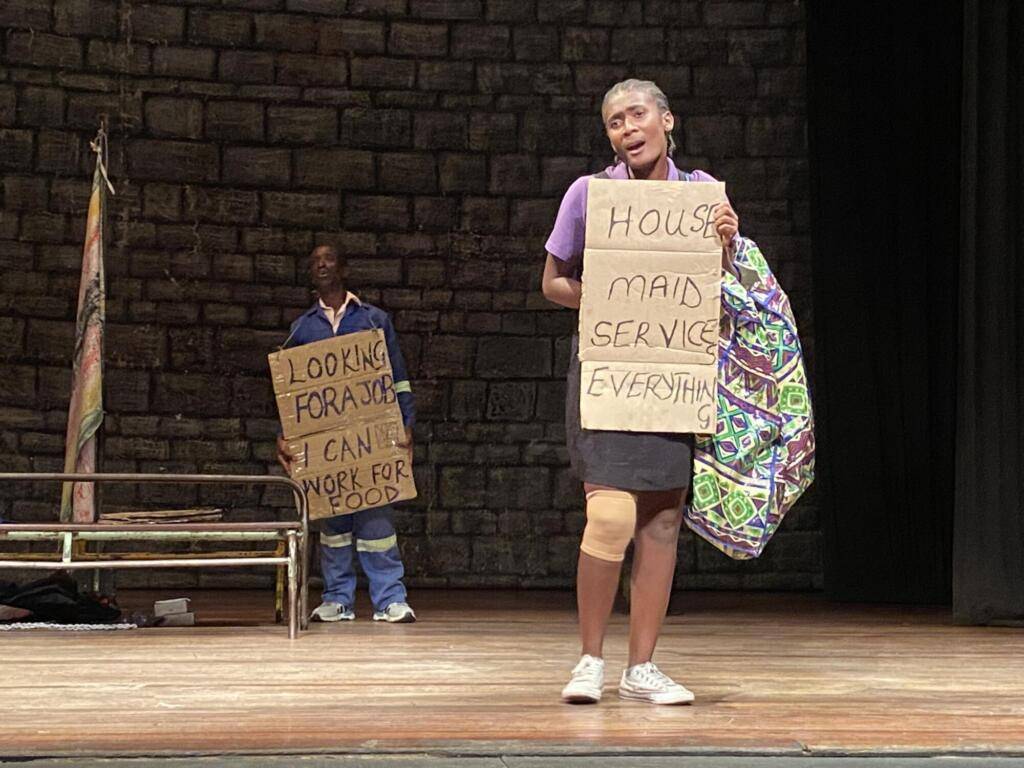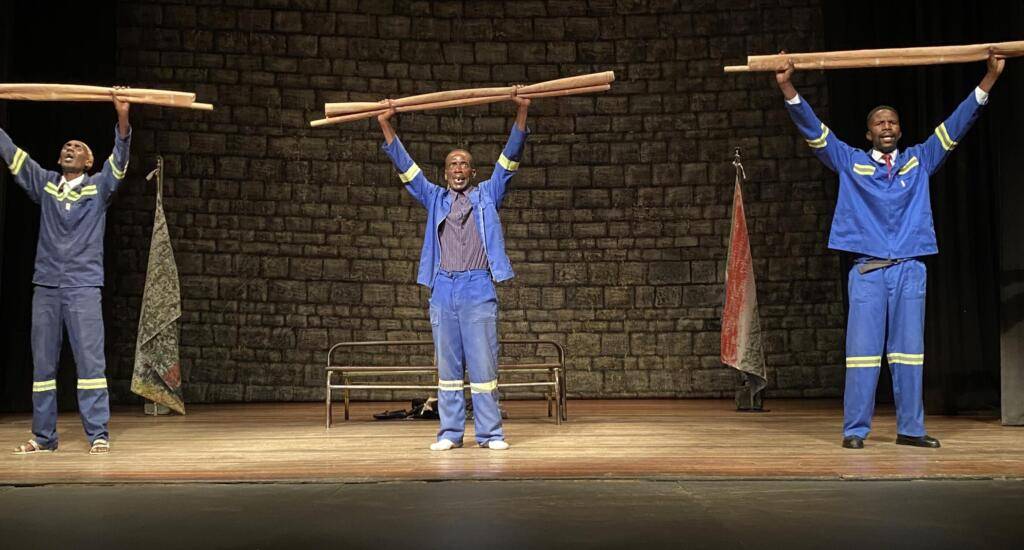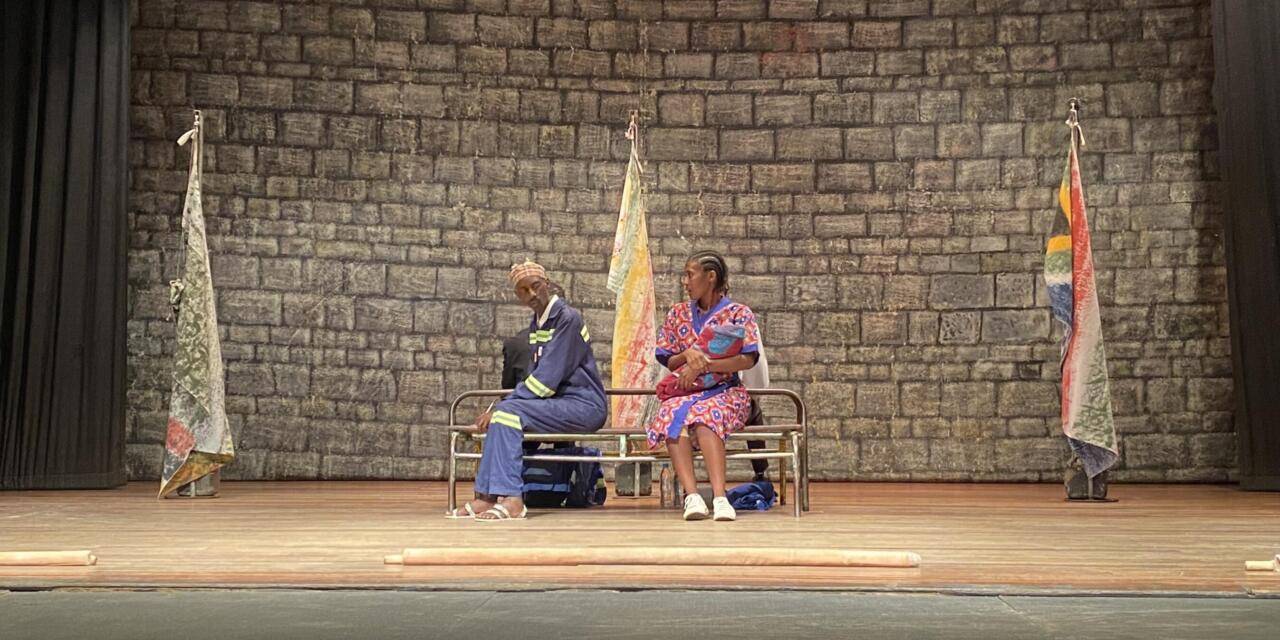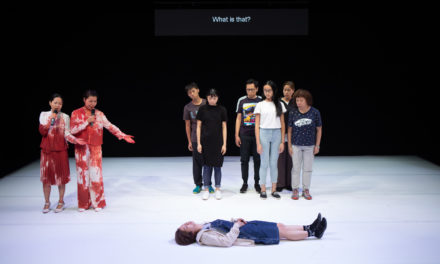Southern Rhodesia (now Zimbabwe) is still in the hands of Britain, the colonial power, and several migrants are coming from neighboring Northern Rhodesia (now Zambia) and Nyasaland (now Malawi) to work in the mines, fields and developing industries. For the Black majority made up of locals and migrants, the repressive laws of the time and living conditions are dehumanizing. The dawn of independence in 1980 therefore brings with it promises and expectations. As celebrations spread far and wide in a liberated Zimbabwe, the population of migrants who have also looked forward to this day, sharing in the adversity of their fellow brothers and sisters, feel left out. Without the relevant national documents that classifies them as equal citizens, their sense of belonging fades away. What then becomes of them and their children as they traverse through the future? Such is the critical message one is drawn to in the theatrical production Without A State which was coined by Nelson Mapako and performed recently by Bambelela Arts Ensemble at Bulawayo Theatre in Zimbabwe.
The production’s early scenes feature a couple that is at the registry office, seeking to process a birth certificate for their baby. They encounter a red tape as the child’s identification documents cannot be processed because the parents are not registered as legal citizens of Zimbabwe. For them, Zimbabwe has been home, and the current administration is even conscious of their existence and the preceding circumstances that saw them settling in the country. With broken spirits, the couple lays bare the historical developments that have led them and many other descendants of migrant workers, into this predicament of being “stateless.” However, Without A State brings balance in addressing the quest for identity and belonging as being universal challenges that not only affect migrant populations but the entire fabric of humanity. Enter the cruel character of politics.

Nomvelo Bhehane (playing a struggling migrant), in Without a State, directed by Nelson Mapako, Bambelela Arts Ensemble at Bulawayo Theatre.
Two dark eras in Zimbabwe’s political history are referenced in the production. The first one being the massacres of the 1980s where an Operation dubbed “Gukurahundi” (a Shona word meaning the early rains that washes off all chaff) was launched in the country’s Matebeleland and Midlands Provinces, targeting what the authorities termed as “dissidents.” In the process several locals were either summarily executed, tortured, abused or forcefully displaced. The second era referenced in the production is the 2005 Operation Murambatsvina (A Shona word meaning “to drive out the filth”) in which the Zimbabwean government launched a series of demolitions against “illegal housing structures” in the urban and peri-urban areas which saw thousands being left homeless. Without A State highlights how these gloomy chapters stripped off the sense of belonging and identity among affected locals. Later the performance drifts into how these political whirlwinds and other proceeding economic challenges have led some to migrate into neighboring countries. In seeking acceptance and belonging among fellow compatriots, they are labelled with all kinds of derogatory tags, harassed or even deported. The depiction of these scenes in the production is painful to watch; it’s an unapologetic reference to history’s sensitive pages, boldly underlining the wrongs committed in the name of order and their snowball effect.
Without A State can be applauded as an engaging piece; noteworthy are the scenes in which the characters request the audience to singalong or to join them onstage in a moment of dancing. This lightened the tense atmosphere that was at times created by the heavy subject matter that was being explored. The production also evaded the treatment of the audience as blank slates, lacking imaginary prowess. Pleasure was for all in finding and making meaning, outside of the obvious. Connecting performed mannerisms and subtle lines in the characters’ dialogue, one could draw parallels with familiar real-life characters and their roles in the ongoing discourse. Shout out to the resourceful cast that was made up of Leonard Phiri, Josphat Ndlovu, Bongelani Ncube and Nomvelo Marvelous Bhehane. Though one might feel that there was need to experiment more with lighting to project the different moods of the story, that remains a subjective standpoint. The production is not about fairies and sugar frosted castles; it’s a soaring piece standing in the face of power; hence it might be prudent to embrace it raw, with its natural fiery void of excessive cosmetics.

Cast playing migrants in Zimbabwe, in Without a State, directed by Nelson Mapako, Bambelela Arts Ensemble at Bulawayo Theatre.
After the hour-long performance came to an end, it felt as though the experience was not enough. There was a perpetual craving for more which even some sections within the audience echoed in the post-play discussion. There was the desire to see all the loose ends connected and answered. What happens to the stateless husband and his wife as they spend yet another night sleeping outside the registry office, seeking to process a birth certificate for their child under unpromising circumstances? What then becomes of that person who migrates from the trials of home and settles in a land that treats her “like an alien” or “stray animal?” Will the troubled migrant ever find a sense of belonging and identity? All these questions as the lights fade, remain unresolved. However, Without A State might have done its bit in having the topical conversations going as alluded by the production writer and director, Nelson Mapako when he said that “Theatre is a vehicle for communication, theatre is for social transformation. Theatre plays a vital role in communicating some of these messages, raising awareness and advocacy. This piece is a protest theatre; we are actually protesting.”
Without A State was inspired by an Amnesty International Report from 2021 titled We Are Like Stray Animals which highlighted that approximately 300 000 people living in Zimbabwe did not have documentation. While the story of this production is built from blocks of Zimbabwe’s experiences regarding the theme of statelessness, migration, identity and belonging, it remains a digestible theatrical exploration that many can relate to in their different corners across the globe.
This post was written by the author in their personal capacity.The opinions expressed in this article are the author’s own and do not reflect the view of The Theatre Times, their staff or collaborators.

















